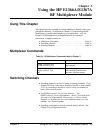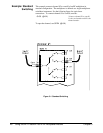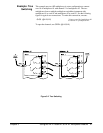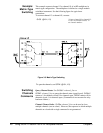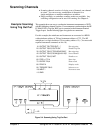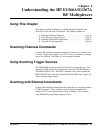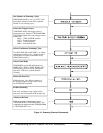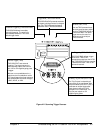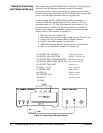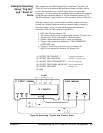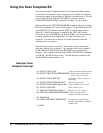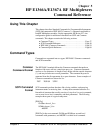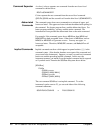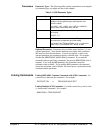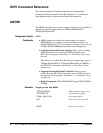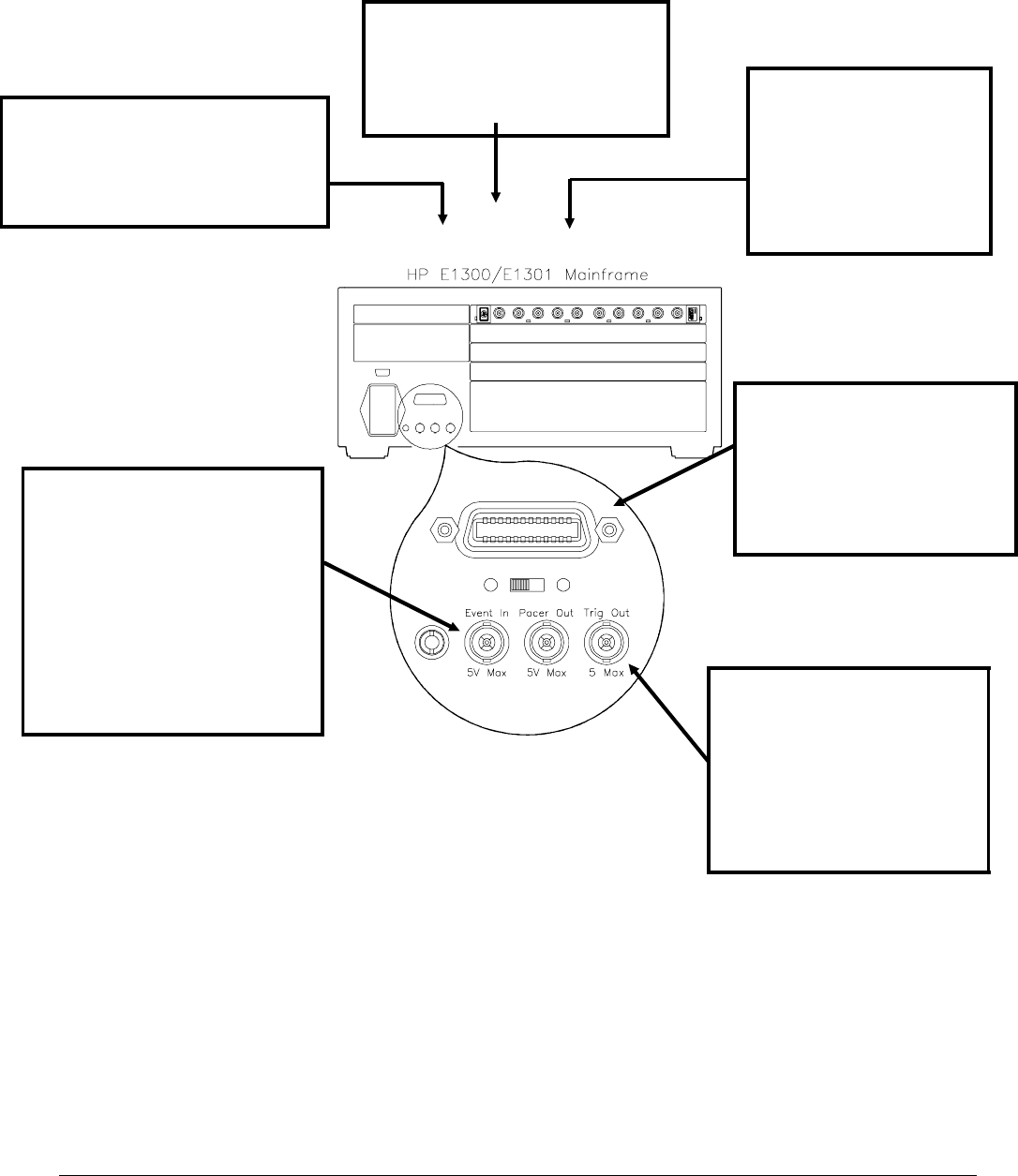
Enabling Trig Out Port (OUTP ON)
The Trig Out port is shared by all
instruments in the mainframe. With
the port enabled (with OUTP ON), it
generates an output trigger after
each channel closure for ANY
switchbox in the mainframe. The
Trig Out port outputs a +5V
negative-going pulse.
Bus Triggering (TRIG:SOUR BUS)
TRIG:SOUR BUS defines trigger
source as a *TRG or GET
command executed over the HP-IB.
With TRIG:SOUR BUS, the scan list
is advanced for each *TRG or GET
command received.
Advance Scan (TRIG)
Can use TRIG command to ad-
vance the scan list when switch-
box is in TRIG:SOUR HOLD or
TRIG:SOUR BUS. For either
trigger source, the scan list
advances one channel per
TRIG command.
Trigger Hold (TRIG:SOUR HOLD)
TRIG:SOUR HOLD prevents execution
of triggers until trigger source is changed.
Can use TRIG command to trigger a
switchbox set to TRIG:SOUR HOLD.
Figure 4-2. Scanning Trigger Sources
Immediate Triggering (TRIG:SOUR IMM)
TRIG:SOUR IMM sets immediate
(internal) triggering. The scan list is
automatically advanced. This is the
default trigger mode.
External Trigger (TRIG)
TRIG:SOUR EXT sets external
triggering. The trigger source is a
(user supplied) input to the Event In
port. Use a +5V negative-going pulse
to trigger.
With two or more switchboxes in a
mainframe, the first switchbox set for
EXT trigger keeps the trigger resource
until the switchbox source is changed
to BUS, HOLD, or IMM.
Chapter 4 Understanding the HP E1366A/E1367A RF Multiplexers 33



